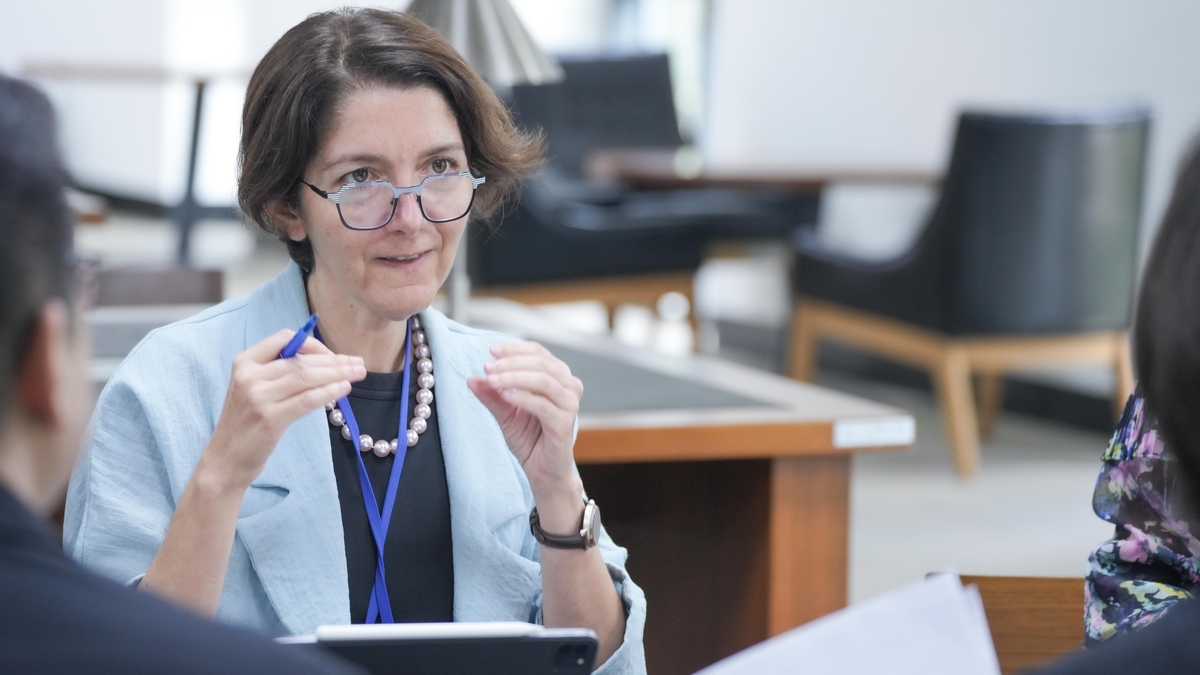(Yonhap Interview) S. Korea makes 'clear' progress in health emergency readiness: WHO official

SEOUL, Sept. 3 (Yonhap) -- South Korea has made "clear and notable progress" in enhancing its readiness against public health crises such as the COVID-19 pandemic, a World Health Organization (WHO) official said, highlighting that the country's health preparedness and response system have significantly improved following its widely recognized handling of the pandemic.
In a written interview with Yonhap News Agency, Gina Samaan, regional emergency director at the WHO Regional Office for the Western Pacific, said she and her team were impressed by such progress made by South Korea in strengthening national systems for health security.
Her remarks followed an on-site Joint External Evaluation (JEE) of South Korea's health emergency response capacity conducted throughout last week, marking the first of its kind to be held here since 2017. The WHO conducts its national evaluation every five years, but the latest evaluation for Seoul had been delayed due to the COVID-19 pandemic.
"The country boosted biosafety and biosecurity by establishing state-of-the-art training facilities, engaging the private sector in training and standardized procedures, and working with other countries to share best practices," Samaan told Yonhap.
The JEE drew on the Korean government's self-assessment.
In the previous evaluation, Korea received scores of 3 out of 5 on several indicators related to national health security during public health emergencies.
During the 2015 Middle East respiratory syndrome (MERS) outbreak, Korea once recorded the world's third-highest case count and faced criticism for an inadequate response. The MERS coronavirus was an emerging infectious disease at the time, and limited understanding of the virus affected detection and response capacity, Samaan said.
During COVID-19, South Korea's "early and effective response" helped limit transmission through public health and social measures, backed by strong public cooperation.
The government implemented extensive contact tracing and public disclosure of movement histories, an approach that proved effective but raised concerns about privacy and potential social stigma.
"There have been many different approaches adopted by different countries in terms of tackling the spread of COVID-19 amid the pandemic. Countries continue to analyze and learn from each, recognizing that each context is different and that 'no one approach fits all,'" she said.
Samaan said the Korea Disease Control and Prevention Agency (KDCA) played a critical technical role in analyzing data and providing evidence to inform policy. She added that innovations such as drive-through and walk-through testing booths increased access to testing.
"Over the years, Korea has implemented a number of legal reforms, early detection and response capacities across different sectors, adopted latest diagnostic and analytic technologies and built KDCA as a center of excellence so that there are networks across all levels of the system that are well-trained and ready for outbreaks," she said.
She also noted that the government has invested heavily in health security workforce development by creating new positions and expanding training.
The director commended Korea for supporting revisions to the International Health Regulations (IHR) and for backing a global Pandemic Agreement aimed at enhancing cross-border collaboration during health emergencies.
WHO member states are subject to the IHR, and South Korea is part of the WHO Western Pacific Region. The IHR is an international legal instrument that sets measures to prevent the transnational spread of infectious diseases.
On areas for further improvement, Samaan recommended that the government conduct simulation exercises to test multi-sector coordination in emergencies and expand the health security workforce to address emerging challenges, such as an aging population.
Noting South Korea has one of the highest suicide rates among Organization for Economic Cooperation and Development (OECD) countries, she said, "The government should continue to expand community-based mental health services, strengthen follow-up for suicide attempts, and identify targeted interventions for high-risk groups through 'psychological autopsy.'"
kyongae.choi@yna.co.kr
(END)





